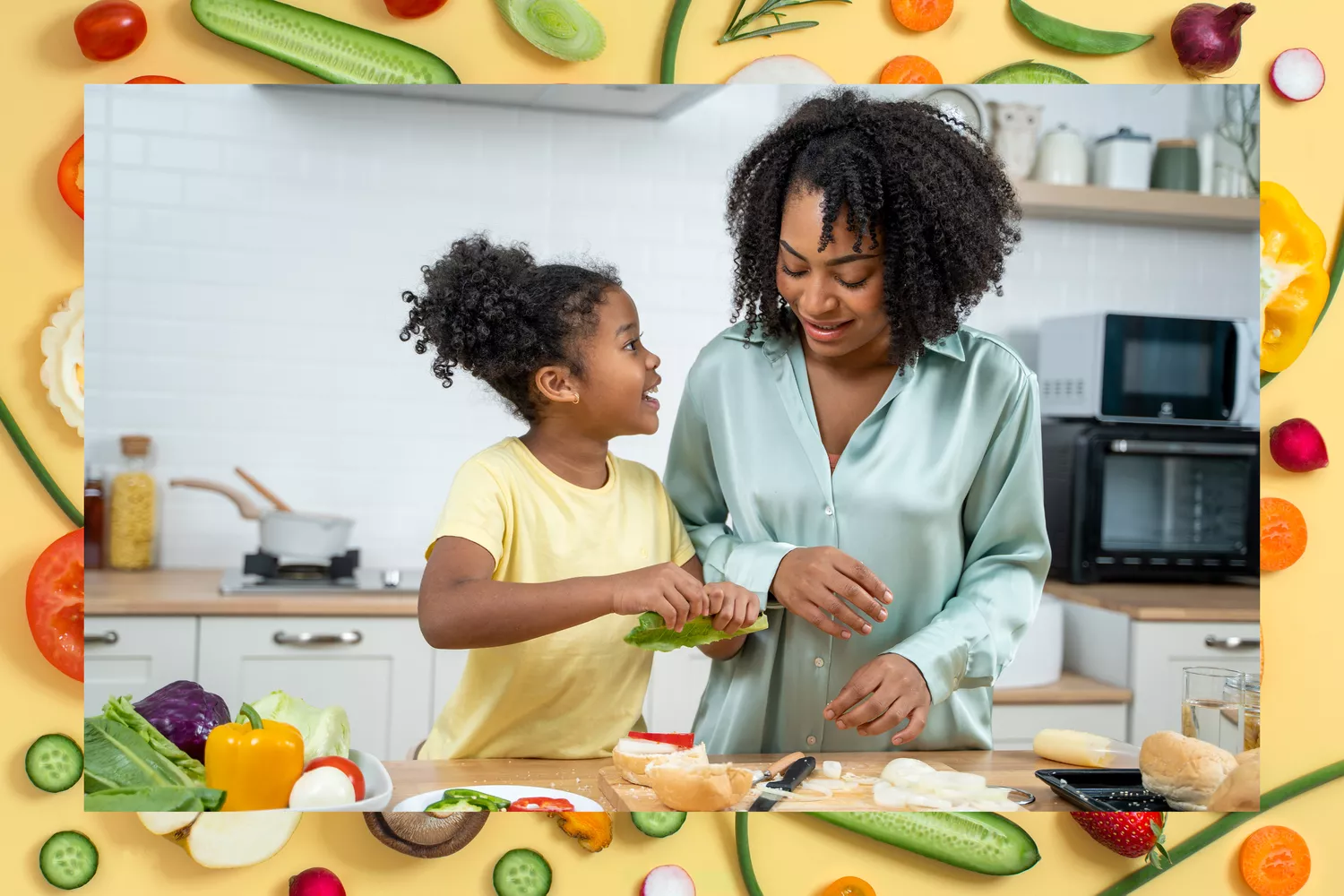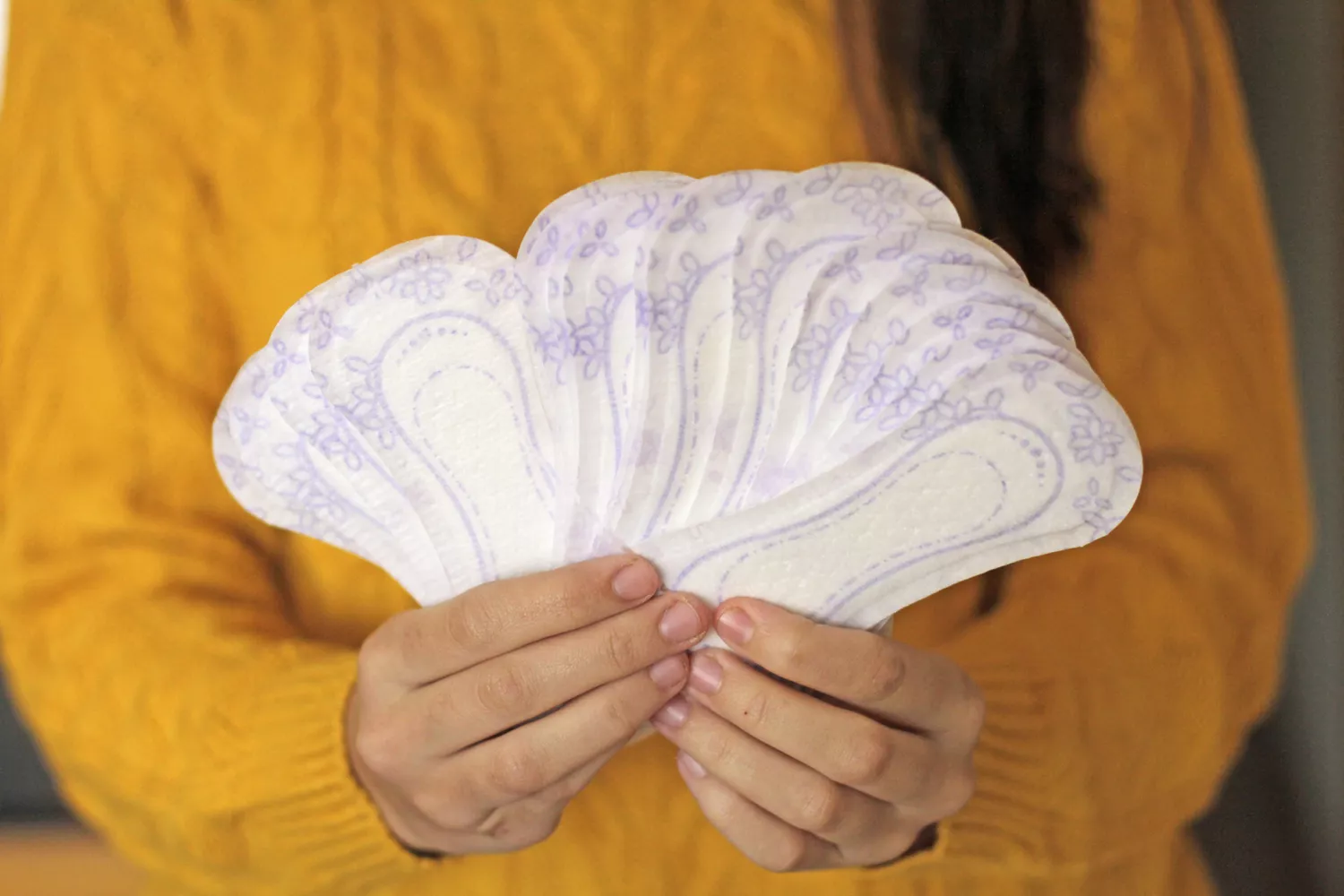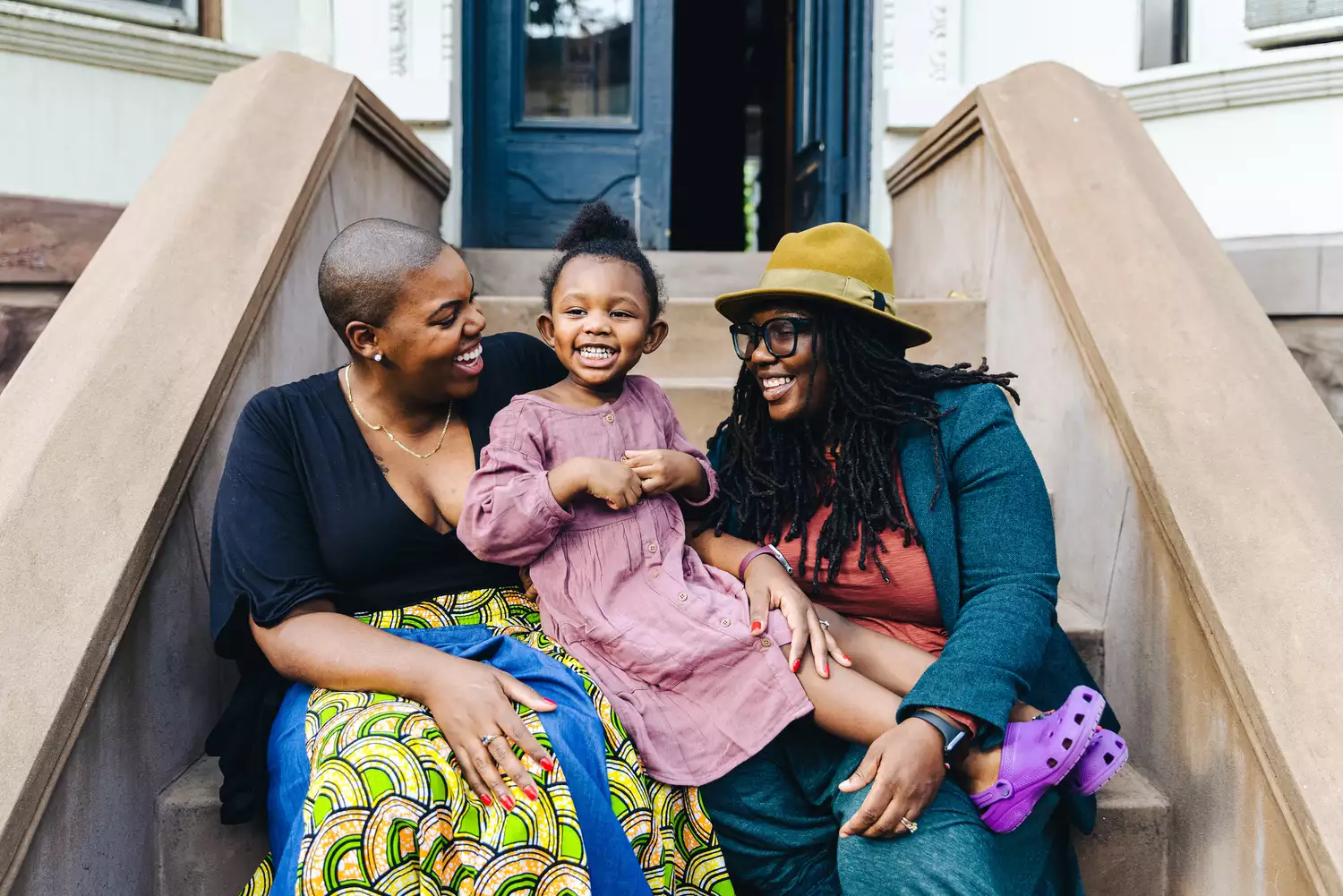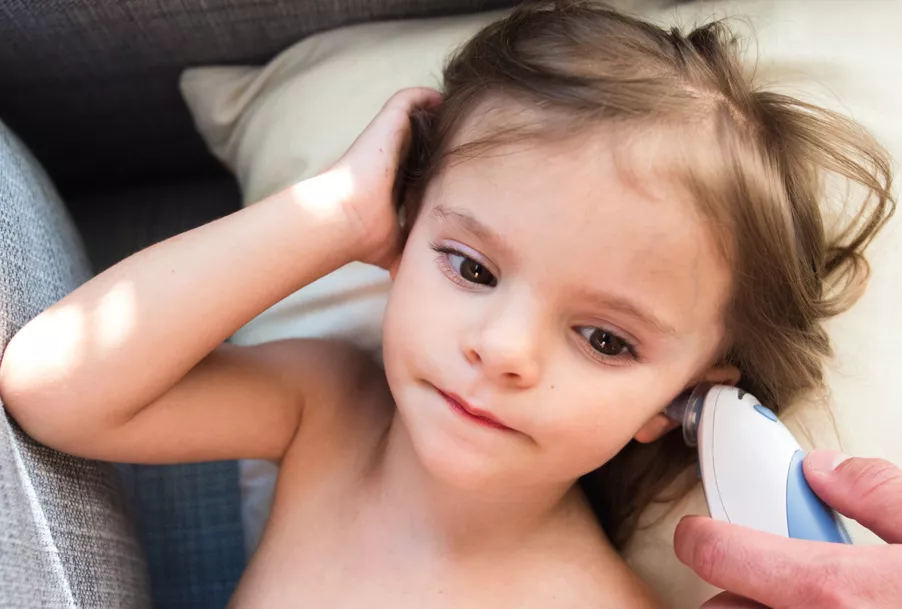When do you share your body issues with your child?


Mila, my 8-year old daughter, has a loving and uncomplicated relationship to her body. I am amazed that she has never compared herself to any other girl. She screams in horror when I mention , the “F Word” — fat. (She also screams at other “F” words.) And she loves to tell me that everyone is beautiful. She loves her long hair and hazel-colored eyes. She has never asked me whether what she is wearing is flattering, or if eating extra cookies (her favourite dessert) will cause her to gain weight.
What to do when your child says, “I’m fat”
I hope that she maintains her positive, accepting, and confident attitude. More than anything else, I hope I can help her stay there. My daughter says that I’m “a grown-up version” of her. She has never mentioned when I have gained or lost any weight. I also made the conscious decision to not share my feelings when I feel bloated, or am upset by the number on the weighing scale. I never use the words “diet” or fattening in her presence. Mila was only a little over 3 years old at the time I had my weight loss surgery.
It was at that time she was too young to know the true reason I spent the night in hospital, but she wasn’t alone. It wasn’t until I openedly admitted to my family and friends that I was unhappy with my weight and health that that I decided to take control by having gastric sleeve procedure. It is for this reason that it concerns me that my daughter notices that I am easily full and often complain, “I shouldn’t have eaten that last bite,” or that I don’t finish my meal.
Even after surgery, my weight fluctuates. Mila’s not asked any more questions yet, but her curiosity and empathy make me think she will. I wonder if I should tell her about my operation too.
Allison Chase, Ph.D. CEDS-S is the regional clinical director of the Eating Recovery Center. She suggests that if Mila asks me questions, I should “very clearly and matter-of-factly” tell her that I am focused on my own health and that I want to do the best for my body, including figuring out the foods my body requires and the amount. If she doesn’t ask anymore, there is no need to continue answering until she does.
6 Lessons on Body Positivity for Children by Age 5
How to explain a complicated relationship with food to kids
I’m sure that I am not the only one who struggles with how much information to share about food, my past and current relationship with dieting and my body. Pam Moore is a Boulder, Colorado-based intuitive eating coach, freelance writer, and mother of two daughters aged 9 and 11. She lied about her diet to her daughters when they were younger.
I didn’t think of it at the time as a diet. I viewed it as a “lifestyle.” Moore says that the app had me weighing and measuring everything according to its instructions. It was 100% diet. When my children asked me why I was weighing out portions, I said that I was being “healthy”. It was not healthy. I was obsessed and stressed out about food because my goals were only aesthetic. I lied to them because I did not like the example that dieting would give. “I wanted them to be able to maintain a positive body image, and I couldn’t promote this if I said I was on a diet to lose weight.”
Ashley Moser is a clinical education specialist and LMFT at the Renfrew Center. She agrees that parents’ attitudes and behaviors around food can have a significant impact on their children. She says it is important to have conscious conversations about our relationship with food. Sharing information about diets, body dissatisfaction and labeling food as “good” or “bad” should be avoided. This will prevent well-intentioned discussions from negatively impacting a child’s feelings about their bodies.
Olivia Dreizen Howell is the co-founder and CEO of Fresh Starts Registry. She made a strong decision when she became a mother not to pass along to her sons, now aged 6 and 9, generations of body trauma and dieting. My sons know that we live in an age of diet culture. She explains that they talk about it very openly. I teach them they have control over their bodies and stomachs, they decide what they eat and when to stop. We discuss the fact that there is no such thing as a “bad food” and that a “bad food” is simply a food which has gone bad!
Howell found that her sons ate more moderately as a result. She says, “They don’t feel like they have to binge eat because I don’t make a big deal out of it.” We talk about my childhood and how dieting was a part of the culture. I also believe that dieting can be harmful to mental health, and one’s ownership of their own body.
Avoid sharing information about diets, body dissatisfaction and labeling food as ‘good or bad’ to avoid even well-intentioned discussions being interpreted negatively by a young child.
ASHLEY MOSER — LMFT
Share ‘Before and After’ Photos with Your Kids
In sixth grade, I started my first diet. In the past, I described childhood photos as being confident and fearless. Wild bangs, long limbs and a toothy grin, with my arms flailing in front of my head, in my “look at me!” pose. pose. My doting grandparents fueled my nascent confidence with compliments like “People would buy your nose” and “Your eyebrows are so good that Brooke Shields herself would be jealous!”
The photos I took at that time were taken before I had the idea that “thinness” is the ultimate goal and gaining weight is bad. I was a size 2 when puberty began to creep up on me. My mom (and she still is) was and is a size 2 with impeccable willpower. When I went back to school shopping, I was in tears because I couldn’t get into the trendy section. My mom brought a worn out photo album of her semester abroad in college into my room. I found photos of my mother smiling and happy posing with landmarks such as the Eiffel tower and Big Ben. She said that she had “eated so many croissants” during the summer that her grandparents could not recognize her at the airport.
In retrospect, I’m grateful for my mother sharing her vulnerability and allowing me to see it. Even so, I am very selective in the photos that I let my daughter see. I only allow her to view those from my tween/teen/college days–and up until adulthood (aka prior to my 2017 surgery). I don’t think she will be able to see the loneliness and sadness in my face. I’m afraid she might not recognize me, or say something innocent about my size – I’ve worn everything from a size 2 to a 20 – that could fuel my shame.
My mom shared her photos for a reason. Moser acknowledges that sharing “before and afterwards” photos can have negative consequences and reinforce diet-culture messages that idealize slimness. When shared with the correct intention, these photos are valuable for our children. If the intention is to share important memories, relationships and experiences, then you should do so, no matter how big or small you were at the time. She says. “What’s important is your experience and emotions, not your size,” she says.
Jennifer Kelman is a JustAnswer expert in mental health. She says that children don’t usually see size. She says, “They only see people who love them.” She recommends sharing older photos with no commentary. If your child asks, “Mommy, you look bigger here,” you can say, “Yes, I was bigger there.” You can help your child by sharing stories about weight, diets, eating disorders, and other issues.
How To Recognize Body Dysmorphic disorder in Teenagers
It’s a delicate decision to eat around your children
My family’s pantry always had a variety of fat-free, calorie-free and tasteless snacks. Our family meals in the 1980s/90s were so low-carb, we had no idea how far ahead we were. Our freezer was full of high-calorie, high-fat treats that were hidden in cabinets above. I learned to extract contraband sweets in the middle night, Mission Impossible-style, and carefully place them under my mattress for midnight snacks.
As a parent today, my “mission” is to never make diets or food a thing. Mila can choose what she wants to eat from the pantry. We encourage Mila to eat fruits and vegetables at every meal, but if she wants an extra serving of chicken nuggets for example, I won’t suggest she “shouldn’t eat that” or make her doubt that something wasn’t good for her “diet.” I try to keep my mealtimes as low-key as possible, and not make it a big issue that sometimes, the meals look different (I maintain a high protein, low carb diet).
One local mom has lost 40 pounds by intermittent fasting under doctor supervision. Her three daughters, all under 7, have noticed not only the changes to her body but that “mommy is no longer eating sweets or snacks.” My friend has an easy explanation. She says, “I tell them I work hard so that I can run and play with my children.” “I couldn’t run or ski around the yard. Even walking around the yard made me feel tired. “I knew my long-term health was at risk when I didn’t feel comfortable in my clothing.”
Kelman recommends this approach when you have to change your diet. It’s not uncommon for people to enjoy different foods at mealtime. She says that children should not hear what a parent has been cutting out, or the latest diet they are trying. Keep the conversation about weight loss, diets, and food out of your kids’ ears. They are not interested.
Dr. Chase advises that you should pay attention to your child’s curiosity and body language if they do notice or ask a question. “And then respond using the golden rule. You could say something like, “I noticed that you made a facial expression when I ate something different from you. Do you have any questions?” She explains. If they answer yes, explain how to take care of your body. Answer all questions clearly and concisely. “They’ll learn how much they can manage.”
Explain that fat isn’t a feeling. Explain to them that people tend to focus more on weight, food and dieting than they do on their feelings.
JENNIFER KELMANN, LCSW
Talking about Body Image
Ashley Austrew is a mother of two from Omaha, Nebraska. She grew up with a household that was very focused on the body. Austrew’s mom was a model before she had children and entered her in beauty pageants. “I wasn’t born with a standard model/pageant-queen body so I was treated differently in my own family because of the way I looked. “I was obsessed from a young age with changing my body,” she says.
Austrew decided to make a conscious decision after having her own children. She wanted to create a household that was body neutral. “The confidence in their bodies that my children have shown me so far is amazing. She says, “I know it will only get worse.” I know that nobody makes it past the teenage years without body-image problems. It was a great benefit to give them the tools they need to better understand our culture’s relationship with body sizes and where these harmful messages come from. I don’t regret having the conversation so early. “We live in a world obsessed with diets that puts thinness above all else. These are important conversations that should never stop.”
This is a great approach. I applaud it because I am worried that my daughter’s self-confidence and body acceptance will diminish as she grows older. My baby fat clung on to life while my friends’ melted away. My seventh-grade clique made me feel like I was being thrown out by dropping a note on my lap that detailed all of my tween age transgressions. I scanned the signature, which was a bouncy one: “From The Skinny Ones.”
This note was the exact moment when dieting became a lifelong battle. Every new diet plan I tried, I was determined and motivated to succeed. I didn’t expect weight loss surgery to be the solution. Even though I can’t lock my daughter in a bubble I’d like to try and create an atmosphere where a single nasty comment doesn’t destroy her self-esteem.
Kelman suggests that if your child struggles with their weight or body image, you should talk to them about how they feel. If they say that they feel fat explain to them that feeling fat is not the same thing. She says that many people, regardless of age, tend to be more focused on weight, food and dieting than they are on their feelings. Explain that people feel better about themselves when they lose weight but the same feelings creep back. Remember to focus on your feelings, and that our bodies are beautiful in every shape and size.











